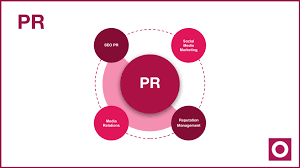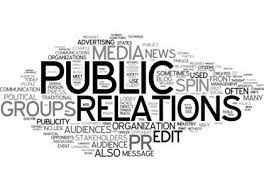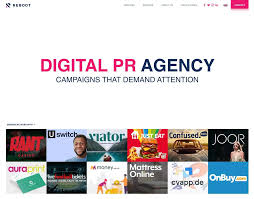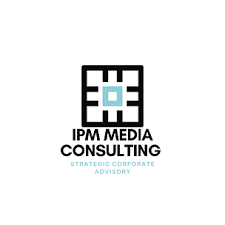Mastering the Art of PR Emails: A Guide to Effective Communication Strategies
The Power of PR Emails in Communication Strategies
Public Relations (PR) emails play a crucial role in modern communication strategies. In today’s digital age, email remains one of the most effective and direct ways to reach your target audience with your message.
PR emails allow businesses and organisations to communicate important information, updates, announcements, and promotions directly to their stakeholders. Whether it’s reaching out to journalists, customers, partners, or investors, a well-crafted PR email can help you convey your message effectively and build relationships.
One of the key advantages of PR emails is their ability to be personalised and targeted. By segmenting your email list and tailoring your message to specific audiences, you can ensure that your communications are relevant and engaging. This personalisation can lead to higher open rates, click-through rates, and overall engagement with your content.
Furthermore, PR emails provide a cost-effective way to distribute information compared to traditional methods such as print media or advertising. With just a click of a button, you can reach thousands of recipients instantly, saving time and resources while maximising the impact of your communication efforts.
When crafting PR emails, it’s essential to pay attention to the subject line and content. A compelling subject line can entice recipients to open the email and engage with the content inside. Clear and concise messaging that highlights the value proposition or key information can help ensure that your message resonates with your audience.
In conclusion, PR emails are a powerful tool in communication strategies that can help businesses connect with their audience effectively. By leveraging the benefits of personalisation, targeting, cost-effectiveness, and compelling content, organisations can enhance their brand reputation, drive engagement, and achieve their communication goals successfully.
8 Essential Tips for Crafting Effective PR Emails
- Personalize the email by addressing the recipient by name.
- Keep the subject line clear, concise, and engaging to increase open rates.
- Provide valuable and relevant information that is tailored to the recipient’s interests.
- Use a professional tone and avoid overly promotional language.
- Include a call to action to encourage the recipient to take further steps.
- Proofread your email carefully for any spelling or grammatical errors.
- Respect the recipient’s time by keeping the email brief and to the point.
- Follow up politely if you don’t receive a response after a reasonable amount of time.
Personalize the email by addressing the recipient by name.
Personalising PR emails by addressing the recipient by name is a simple yet effective tip that can significantly enhance the impact of your communication. By using the recipient’s name, you create a sense of individual connection and relevance, making them more likely to engage with the content. This personal touch shows that you value their attention and are speaking directly to them, increasing the chances of your message being noticed and well-received. Incorporating this personalisation technique in PR emails can help establish a stronger rapport with your audience and improve the overall effectiveness of your communication strategy.
Keep the subject line clear, concise, and engaging to increase open rates.
Keeping the subject line of your PR emails clear, concise, and engaging is a crucial tip to boost open rates. A well-crafted subject line acts as a gateway to your email content, enticing recipients to click and explore further. By clearly conveying the purpose or value proposition of your email in a concise manner, you can capture the attention of your audience and encourage them to open and engage with your message. A compelling subject line sets the tone for the entire email and increases the likelihood of recipients taking action, ultimately enhancing the effectiveness of your PR communication strategy.
Provide valuable and relevant information that is tailored to the recipient’s interests.
To maximise the effectiveness of PR emails, it is crucial to provide valuable and relevant information that is tailored to the recipient’s interests. By understanding the preferences and needs of your audience, you can customise your message to resonate with them on a personal level. Offering content that is specifically curated to address their interests not only increases the likelihood of engagement but also demonstrates a genuine commitment to building meaningful relationships with your stakeholders. This personalised approach can lead to higher open rates, improved response rates, and ultimately, a stronger connection between your brand and its target audience.
Use a professional tone and avoid overly promotional language.
When crafting PR emails, it is essential to maintain a professional tone and steer clear of overly promotional language. By adopting a professional tone, you can establish credibility and build trust with your recipients. Avoiding excessive promotion helps to ensure that your message comes across as informative and valuable rather than pushy or sales-oriented. By striking the right balance between professionalism and authenticity, you can effectively engage your audience and convey your message in a compelling and respectful manner.
Include a call to action to encourage the recipient to take further steps.
Including a call to action in your PR emails is essential to encourage recipients to take further steps and engage with your content. Whether it’s directing them to visit your website, download a resource, sign up for an event, or contact you for more information, a clear and compelling call to action can prompt recipients to act on the information you’ve provided. By guiding recipients on what to do next, you can drive conversions, increase engagement, and ultimately achieve your communication objectives effectively.
Proofread your email carefully for any spelling or grammatical errors.
To ensure the professionalism and credibility of your PR emails, it is essential to meticulously proofread your content for any spelling or grammatical errors. Mistakes in spelling or grammar can detract from the clarity and impact of your message, potentially undermining the effectiveness of your communication efforts. By taking the time to review and correct any errors before sending out your PR emails, you can convey a polished and professional image to your recipients, enhancing the overall quality and reception of your communication.
Respect the recipient’s time by keeping the email brief and to the point.
Respecting the recipient’s time is crucial when crafting PR emails. Keeping the email brief and to the point not only demonstrates professionalism but also increases the likelihood of the recipient engaging with the content. By delivering concise and relevant information, you show that you value their time and make it easier for them to quickly grasp the key message. This approach can lead to higher response rates and better overall communication effectiveness in PR campaigns.
Follow up politely if you don’t receive a response after a reasonable amount of time.
It is important to follow up politely if you do not receive a response after a reasonable amount of time when sending PR emails. A gentle reminder can prompt the recipient to revisit your message and provide the necessary feedback or action. By following up in a courteous manner, you demonstrate professionalism and persistence in your communication efforts, showing that you value their time and input. This proactive approach can help maintain open lines of communication and foster stronger relationships with your contacts in the long run.












